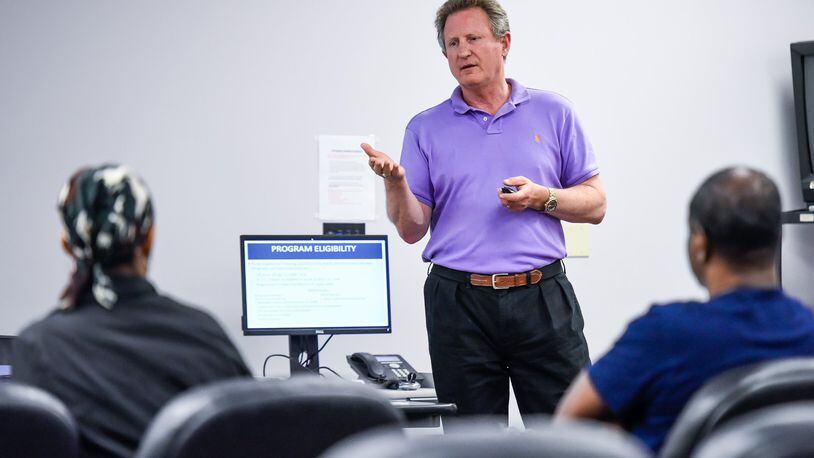Interim JFS Executive Director Bill Morrison said they are working on a new request for proposals that looks much different and involves many facets of the community.
“My sense of things is the best JFS has this web of connectivity throughout the community where we’re tapping into all that talent and resources,” Morrison said. “Because the people that come to us with chronic barriers to employment are all different from one another. We can’t serve them with one cookie cutter thing that says here’s what we offer, fit your square self into our round hole. It’s harder to do it this way but I think it’s better to do it this way.”
He is modeling the programs after Commissioner Cindy Carpenter’s Motherhood and Maternity Addiction Services (MAMAS) wrap around program to get drug-addicted mothers clean which has been a success story.
RELATED: MAMAS program works to get pregnant addicts clean for life
The MAMAS program includes residential treatment, recovery housing, life skills training, job search assistance and a support system, among other services.
Morrison said organizations like Supports to Encourage Low-income Families (SELF) — that agency provides life skills training for the MAMAS program — and others in the community have already said they would like to be a part of the new JFS.
Morrison said there is a big difference between telling someone on public assistance, who has a work requirement, to take a resume writing class and actually pointing that person to a real job you know is open. In order for this to be successful he said they also have to direct people to jobs that pay a living wage, otherwise there is no incentive to work.
“We need to be able to sit with people and to say let’s look at your budget, I can show you how you’ll be better off. Because unless we develop an honest approach to working with people we’re not going to be successful because people aren’t stupid,” he said.
“We need to make work of more value than public assistance is. Our core strategy in this is that public assistance should be easy to get on and even easier to get off.”
Morrison has already revamped the case flow at JFS so clients have to deal with fewer workers and get more personalized attention.
RELATED: JFS gets an overhaul
When they are ready to ask for proposals Morrison said there will likely be four or five components that specifically target individual needs, like those who have chronic mental illness or substance abuse issues among other barriers.
From March 2016 through January CBH served 853 clients and had a job retention rate of 69 percent. The agency not only helped clients with physical barriers but helped people get their GED, other training and also partnered with BCRTA for those with transportation issues.
Danielle Webb, spokeswoman for CBH, said while there are no hard feelings, the agency won’t bid on this new program, but still wants to work with JFS in other ways.
“The RFP is for a program we have been doing successfully for more than 13 years,” she said. “We really feel like the success of the program comes from the continuity of care that happens when you have all of the components in one place.”
Commissioner Don Dixon said he appreciates the service CBH provided but it is time for a change because “there’s a lot of room for improvement” in the social services realm.
“Anything that makes it better, if you keep doing things the same old way it’s going to come out the same old way,” Dixon said. “It’s just another way to try and come up with some programs that are really more impactful and deliver more good outcomes.”
Commissioner T.C. Rogers said their board is committed to making every service they provide relevant and effective.
“We don’t believe in the status quo,” he said.
Morrison has also hired Kathy Becker — former CEO of Transitional Living, Inc. who has also worked very hard with the homeless population — part-time to help with the project. She said a very important piece of this effort is the fact Morrison wants to branch out and provide services outside of Hamilton.
“One of the things that has come up very clearly is that Middletown has no location for stuff like this and that’s really put the citizens in Middletown at a disadvantage,” she said. “I give him credit, Bill really wants to empower people not just in Middletown but if there is somebody in any part of Butler County that can’t get to Hamilton.”
Morrison said he has no preconceived notions about what the program is going to ultimately look like, he said the name of this effort is innovation.
“We want to make our palette of services more vibrant, so people have options,” Morrison said.
About the Author
